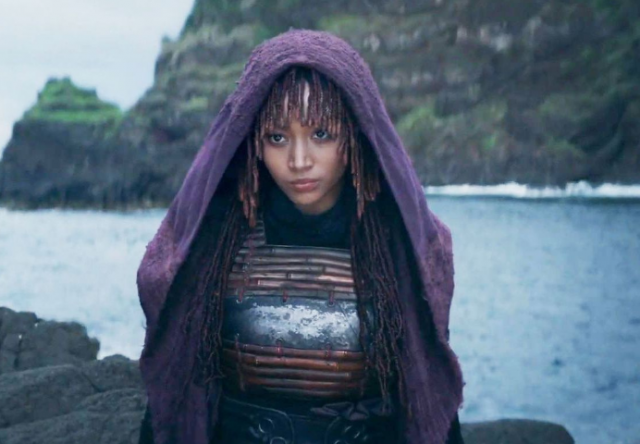The Acolyte Episode 3 Destiny makes fans skeptical of the Jedi
The Acolyte airs on Disney+ every Tuesday.

In the premiere of The Acolyte, a notable revelation was Amandla Stenberg portraying two distinct characters. One of them arrived on Coruscant to undergo Jedi Padawan training but eventually parted ways with Master Sol and the Order due to unresolved grief.
The second character underwent training with an unidentified Sith Master, potentially an apprentice, seeking vengeance for what befell her coven on the planet Brendok sixteen years prior. However, the details of that fateful night remain shrouded in mystery.
That remains the overarching mystery, surpassing even the identity of the Jedi's assailant. Episode 3, titled "Destiny," does not disclose all the answers or fully unveil the show's secrets yet.
It's premature for such revelations at this stage. However, the episode significantly enriches the Star Wars universe with deeper lore and world-building. It also narrates a poignant tale involving family, faith, and a critical perspective on Jedi traditions.
Episode 3 of The Acolyte highlights the problems in Jedi culture
Sol, Indara, Padawan Torbin, and Wookiee Jedi Kelnacca are viewed upon their arrival as intruders at best and potentially kidnappers at worst.
Although their confrontation remains non-violent, director Kogonada, renowned for works like After Yang and Sight & Sound video essays, captures the scene with tension akin to a precarious balance.
The scene highlights the Order's hypocrisy, criticizing the coven for possibly training children while asserting their own authority to evaluate Mae and Osha as potential Padawans.
Even Sol, who exemplifies the Jedi's noble qualities in The Acolyte's premiere, displays some ego when conducting Osha's test.
His discussion about being "different" before joining the Order and how the Jedi perceived him as "special" paints the Order in an elitist light, a mindset that Star Wars fans recognize persisted into the prequel era.
In The Acolyte's premiere, Sol, embodying the Jedi's virtues, shows hints of ego during Osha's test. His reflection on being "different" before joining the Order and the Jedi's view of him as "special" casts a light on the Order's elitism, a trait recognized by Star Wars fans to have endured into the prequel era.
Does The Acolyte Episode 3 Make Viewers Skeptical of the Jedi?
The main draw of "Destiny" is its challenge to viewers to reconsider their perceptions of the Jedi.
The Acolyte is set during a time when the Jedi are navigating a critical juncture between their revered traditions and their rigid dogma.
The first two episodes hinted at this perspective, especially when the altered Vernestra Rwoh advocated for Jedi deliberation over immediate action.
However, "Destiny" actively encourages viewers to question the Jedi's effectiveness when their methods of recruiting Padawans unsettle other communities. As a result, the episode is highly subjective in nature.
"Destiny" portrays all other Force-users in the galaxy, including the still undiscovered Sith, as seeming like underdogs in comparison. According to Star Wars canon, the Jedi's hubris will eventually cause them to relinquish their roles as peacekeepers, further eroding public trust and inadvertently aiding the Sith.
The Acolyte is still far removed from those events, but through Mae and Osha's backstory, it becomes evident they are closer to reaching a critical juncture than fans initially realized.
As Aniseya astutely points out, "This is about power and who is allowed to use it." Episode 3 of The Acolyte delves into this statement from various perspectives, leaving viewers with diverse interpretations.
The Acolyte airs on Disney+ every Tuesday.



















COMMENTS
Comments are moderated and generally will be posted if they are on-topic and not abusive.
For more information, please see our Comments FAQ